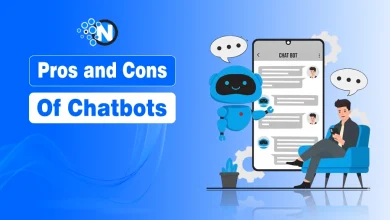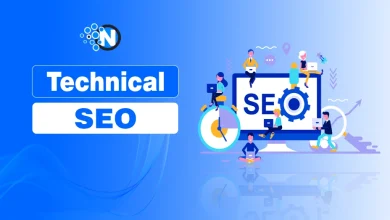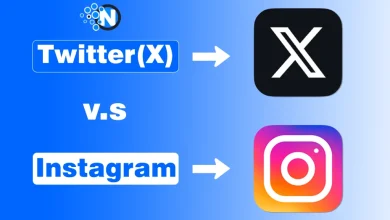Effective Tips to Use AI in Digital Marketing For Better Outcomes

Artificial Intelligence has taken the marketing world by storm. As a digital marketer myself, I have seen how AI is no longer a futuristic concept; it is already transforming the way businesses connect with their audiences.
From automating tasks to providing deeper insights into customer behavior, AI is shaping digital marketing strategies in ways we could not imagine a decade ago. But how to get the most out of AI in digital marketing?
In this blog post, I have mentioned the top 10 practical tips on how AI can be used effectively in digital marketing today. So, you can achieve the targeted outcomes..
The Role of AI in Today’s Digital Marketing
AI has become the backbone of modern digital marketing because it allows us to analyze vast amounts of data, predict customer behavior, and personalize experiences on a scale that was previously impossible.
Whether you are running ads, writing content, or building customer journeys, AI can save you time, improve efficiency, and generate better results.
Top 10 Tips to Use AI in Digital Marketing
When we talk about Artificial Intelligence in marketing, many people instantly think of automation. While automation is important, that’s only scratching the surface.
What AI really does is allow us to make smarter decisions, anticipate customer needs, and build stronger relationships without being buried under repetitive tasks. Whether you are a solo entrepreneur or a large enterprise, AI can deliver massive results.
In the under section, I have provided tips to use AI in digital marketing campaigns. These can help you implement AI in practical and meaningful ways.
1. Use AI for Customer Insights
One of the biggest strengths of AI is its ability to process large amounts of customer data in seconds. Think about how many touchpoints a customer interacts with before making a purchase.
Obviously, these involve social media platforms, emails, website visits, ad clicks, and even offline activities. As humans, it is impossible to track every single data point, but AI can. When you use AI-driven analytics tools, you can spot patterns in customer behavior.
For example, you might discover that a segment of your audience tends to buy more during weekends, or that customers from a specific city prefer one product over another. With these insights, you can design campaigns that feel more personalized and relevant.
Instead of throwing a wide net, you will be targeting people with messaging that resonates deeply with them.
- Effective Solution: Tools like Google Analytics with AI insights, HubSpot, or Salesforce Einstein can help you understand customer behavior in real-time, and give you a clear roadmap for marketing decisions.
2. Personalize User Experience
Customers today expect brands to “know” them. They don’t want generic recommendations; they want experiences personalized to their unique preferences. AI helps you deliver that level of personalization.
For example, e-commerce platforms can use AI recommendation engines to suggest products based on browsing and purchase history. Content platforms like Netflix and Spotify rely heavily on AI to recommend shows or songs according to individual tastes. This same principle applies to your business too.
If you run a blog, AI can suggest related articles. If you sell products, AI can recommend complementary items. It not only boosts sales but also creates a sense of connection with the customer.
- Effective Solution: Use personalization tools like Dynamic Yield, Optimizely, or Adobe Sensei to create individualized user journeys. Customers will feel like your brand understands them, which leads to loyalty and repeat purchases.
3. Optimize Ad Campaigns Automatically
Running ads without AI is like driving without GPS. You will eventually get there, but it won’t be efficient. AI makes ad campaigns smarter by analyzing performance data in real-time and adjusting elements automatically.
Platforms such as Google Ads and Meta (Facebook/Instagram) Ads already use AI to optimize bids, placements, and audience targeting. For instance, if AI detects that your ad performs better among a younger demographic, it will adjust the campaign budget to prioritize that group.
It takes the guesswork out of ad management. Instead of manually tweaking campaigns daily, you let AI do the heavy lifting, while you focus on refining your overall strategy.
- Effective Solution: Always enable automated bidding and audience expansion features in Google Ads or Meta Ads Manager. Pair this with AI-driven tools like AdRoll or Albert.ai for multi-channel optimization.
4. Automate Customer Support with Chatbots
Imagine a customer landing on your website at midnight with a simple question. Without AI, they will either have to wait until morning or leave your site entirely. AI-powered chatbots change this by offering 24/7 support.
These bots can answer FAQs, guide users to the right pages, and even assist with product selection. Advanced chatbots powered by natural language processing (NLP) can carry out conversations that feel surprisingly human.
It not only improves customer experience but also reduces workload for your support team, and allows them to focus on complex issues rather than repetitive questions.
- Effective Solution: Tools like Intercom, Drift, or ManyChat can be integrated into your site or social media platforms. Start by programming responses to common queries, then expand into more advanced interactions as your business grows.
5. Enhance Content Creation
Content is at the heart of digital marketing, and AI can supercharge your process. I don’t mean AI should replace human creativity, but it can speed up brainstorming, structuring, and even drafting.
For example, AI tools can generate blog outlines, suggest engaging headlines, or create SEO-friendly product descriptions. They can also analyze existing content to identify gaps or underperforming topics.
Moreover, tools like Humanize AI help refine AI-generated text so it feels more authentic, natural, and engaging, ensuring that your content resonates with your audience while maintaining efficiency. By leveraging such tools, marketers can combine the speed of AI with the subtlety of human creativity, producing content that truly connects with readers
Ultimately, it allows you to focus your energy on adding your unique voice and insights rather than starting from scratch every time. This way, you can consider AI as a reliable assistant that gets you halfway there.
- Effective Solution: Platforms like Jasper, Copy.ai, or Writesonic can help produce content ideas and drafts. Combine them with Grammarly or Surfer SEO to ensure content quality and optimization.
6. Improve Email Marketing Performance
Email remains one of the most cost-effective digital marketing channels, and AI makes it even more powerful. Instead of sending generic emails to your entire list, AI helps you segment audiences and personalize content.
AI can predict when individual subscribers are most likely to open an email and deliver messages at those optimal times. It can also recommend which subject lines or CTAs (call-to-actions) are most likely to drive engagement.
This level of precision turns email from a hit-or-miss tool into a high-performing channel that consistently delivers results.
- Effective Solution: Email marketing tools like Mailchimp, Klaviyo, or Campaign Monitor with AI enhancements allow predictive sending and content personalization. Start with simple A/B testing powered by AI and expand into automated customer journeys.
7. Use Predictive Analytics for Sales Forecasting
Wouldn’t it be amazing if you could predict which products customers will buy next month? With AI, you can. Predictive analytics uses historical data to identify trends and forecast future outcomes.
Retailers, for example, can anticipate spikes in demand for certain products during seasonal periods. It helps with inventory management and ensures marketing campaigns align with customer demand.
Predictive analytics also allows you to identify at-risk customers who may churn, so you can target them with special retention campaigns.
Effective Solution: Use tools like IBM Watson Analytics, SAS, or Tableau with AI integration for predictive forecasting. It ensures your sales and marketing teams always have actionable insights.
8. Monitor Competitors with AI Tools
Staying ahead of competitors requires constant vigilance, and AI makes this task easier. Instead of manually tracking competitor websites and campaigns, AI tools can automatically monitor changes.
For instance, you can see if a competitor lowers their product prices, launches new ads, or publishes high-performing content. It allows you to adapt your strategy quickly rather than reacting too late.
AI can also show you how customers feel about your competitors by monitoring sentiment on social media. Hence, it gives you opportunities to step in and fill the gaps they leave behind.
- Effective Solution: Tools like Crayon, Kompyte, or SEMrush’s Market Explorer provide competitor analysis with AI-driven alerts. Use these insights to differentiate your brand and capitalize on missed opportunities.
9. Improve SEO with AI-Powered Tools
Search engine optimization is no longer about stuffing keywords into content. Modern SEO is about understanding user intent, and AI excels at this.
AI-powered SEO tools can analyze millions of search queries to reveal what people are really looking for. They also suggest related topics and semantic keywords that can make your content more comprehensive.
Some platforms can even score your content in real-time to predict how well it will rank. It gives you a competitive advantage in creating content that search engines and readers love.
- Effective Solution: Use tools like Surfer SEO, Clearscope, or MarketMuse to optimize content with AI-driven keyword and intent analysis. Combine these insights with traditional SEO tools for maximum impact.
10. Utilize AI in Social Media Listening
Social media is where customers openly share their opinions about brands, products, and trends. AI helps you listen to these conversations at scale.
AI-powered listening tools can scan platforms like Twitter, Instagram, or TikTok to identify brand mentions, hashtags, and even the overall sentiment behind posts. For example, you can instantly know if a new campaign is being received positively or negatively.
It allows you to adjust messaging quickly, engage with users in real-time, and even jump on emerging trends before competitors do.
- Effective Solution: Tools like Brandwatch, Sprinklr, or Hootsuite Insights give you AI-powered social listening. Monitor conversations daily and use insights to shape campaigns and customer interactions.
Final Thoughts
These are the details about the 10 effective tips to use AI in digital marketing for better outcomes.
AI has already transformed digital marketing, but we are only scratching the surface. Today, it helps us automate repetitive tasks, analyze customer behavior, and personalize campaigns. Tomorrow, it will bring hyper-personalization, AR experiences, predictive strategies, and even emotional recognition.
As a marketer, I see AI not as a replacement for human creativity but as a powerful assistant that allows us to focus on building authentic connections with our audience. If you adopt AI today, you will not only stay relevant but also lead the way in the digital marketing future.




